Claude Lanzmann
출생 : 1925-11-27, Paris, Ile-de-France, France
사망 : 2018-07-05

Himself (archive footage)
A chronicle of the Holocaust, told by the resilient survivors who lived through it.

Claude Lanzmann
After his retirement, french philosopher and bullfighting enthusiast Francis Wolff decides to embark on a journey to France, Spain and Mexico joined by two mexican filmmakers who hardly know anything about bullfighting, a culture whose days seem to be numbered. During their road trip, they encounter numerous personalities with whom they reflect on mankind’s relationship with animals and nature, but most importantly on our relationship with death and the meaning of the ultimate journey: life itself.
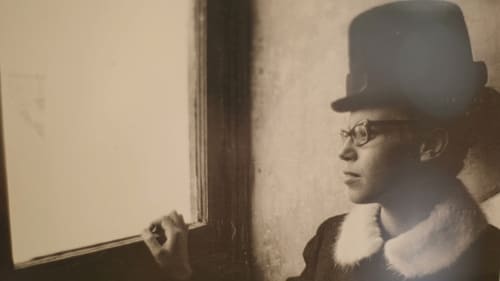
Self (Archival footage)
This film tells the life story of Ziva Postec, emphasizing the period when she was editing Shoah from 350 hours of footage.

Since 1999, Claude Lanzmann has made several films that could be considered satellites of Shoah, comprised of interviews conducted in the 1970s that didn’t make it into the final, monumental work. He has just completed a series of four new films, built around four women from four different areas of Eastern Europe with four different destinies, each finding herself unexpectedly and improbably alive after war’s end.

Writer
Since 1999, Claude Lanzmann has made several films that could be considered satellites of Shoah, comprised of interviews conducted in the 1970s that didn’t make it into the final, monumental work. He has just completed a series of four new films, built around four women from four different areas of Eastern Europe with four different destinies, each finding herself unexpectedly and improbably alive after war’s end.

Director
Since 1999, Claude Lanzmann has made several films that could be considered satellites of Shoah, comprised of interviews conducted in the 1970s that didn’t make it into the final, monumental work. He has just completed a series of four new films, built around four women from four different areas of Eastern Europe with four different destinies, each finding herself unexpectedly and improbably alive after war’s end.
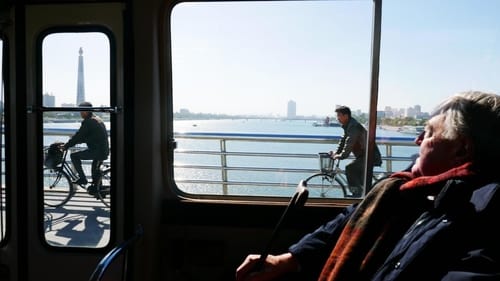
Himself
Napalm is the story of the breathtaking and brief encounter, in 1958, between a French member of the first Western European delegation officially invited to North Korea after the devastating Korean war and a nurse working for the Korean Red Cross hospital, in Pyongyang, capital of the Democratic People’s Republic of Korea.

Writer
Napalm is the story of the breathtaking and brief encounter, in 1958, between a French member of the first Western European delegation officially invited to North Korea after the devastating Korean war and a nurse working for the Korean Red Cross hospital, in Pyongyang, capital of the Democratic People’s Republic of Korea.

Director
Napalm is the story of the breathtaking and brief encounter, in 1958, between a French member of the first Western European delegation officially invited to North Korea after the devastating Korean war and a nurse working for the Korean Red Cross hospital, in Pyongyang, capital of the Democratic People’s Republic of Korea.
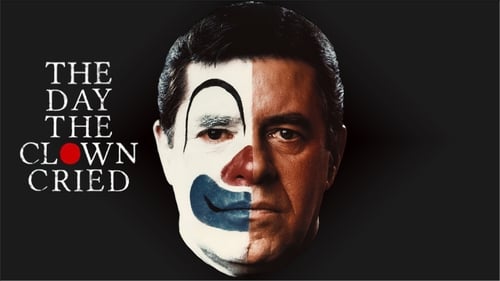
Self
A documentary directed by Eric Friedler about Jerry Lewis' never released movie "The Day The Clown Cried".

The process of making Shoah.
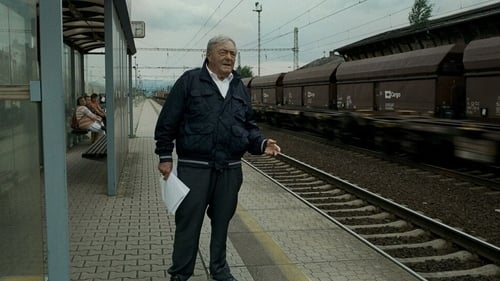
Himself
A place: Theresienstadt. A unique place of propaganda which Adolf Eichmann called the "model ghetto", designed to mislead the world and Jewish people regarding its real nature, to be the last step before the gas chamber. A man: Benjamin Murmelstein, last president of the Theresienstadt Jewish Council, a fallen hero condemned to exile, who was forced to negotiate day after day from 1938 until the end of the war with Eichmann, to whose trial Murmelstein wasn't even called to testify. Even though he was without a doubt the one who knew the Nazi executioner best. More than twenty-five years after Shoah, Claude Lanzmann's new film reveals a little-known yet fundamental aspect of the Holocaust, and sheds light on the origins of the "Final Solution" like never before.

Writer
A place: Theresienstadt. A unique place of propaganda which Adolf Eichmann called the "model ghetto", designed to mislead the world and Jewish people regarding its real nature, to be the last step before the gas chamber. A man: Benjamin Murmelstein, last president of the Theresienstadt Jewish Council, a fallen hero condemned to exile, who was forced to negotiate day after day from 1938 until the end of the war with Eichmann, to whose trial Murmelstein wasn't even called to testify. Even though he was without a doubt the one who knew the Nazi executioner best. More than twenty-five years after Shoah, Claude Lanzmann's new film reveals a little-known yet fundamental aspect of the Holocaust, and sheds light on the origins of the "Final Solution" like never before.

Director
A place: Theresienstadt. A unique place of propaganda which Adolf Eichmann called the "model ghetto", designed to mislead the world and Jewish people regarding its real nature, to be the last step before the gas chamber. A man: Benjamin Murmelstein, last president of the Theresienstadt Jewish Council, a fallen hero condemned to exile, who was forced to negotiate day after day from 1938 until the end of the war with Eichmann, to whose trial Murmelstein wasn't even called to testify. Even though he was without a doubt the one who knew the Nazi executioner best. More than twenty-five years after Shoah, Claude Lanzmann's new film reveals a little-known yet fundamental aspect of the Holocaust, and sheds light on the origins of the "Final Solution" like never before.

Himself
A powerful new film about Jan Karski, the Polish resistance figure who attempted to expose the Warsaw Ghetto and Belzec, and met with President Franklin D. Roosevelt and Supreme Court Justice Felix Frankfurter.

Writer
A powerful new film about Jan Karski, the Polish resistance figure who attempted to expose the Warsaw Ghetto and Belzec, and met with President Franklin D. Roosevelt and Supreme Court Justice Felix Frankfurter.

Director
A powerful new film about Jan Karski, the Polish resistance figure who attempted to expose the Warsaw Ghetto and Belzec, and met with President Franklin D. Roosevelt and Supreme Court Justice Felix Frankfurter.

Writer
At the occasion of the sixtieth anniversary of Israel, Claude Lanzmann made an interview of Ehud Barak, on March 1st, 2008.

Director
At the occasion of the sixtieth anniversary of Israel, Claude Lanzmann made an interview of Ehud Barak, on March 1st, 2008.

Self - Interviewer
At the occasion of the sixtieth anniversary of Israel, Claude Lanzmann made an interview of Ehud Barak, on March 1st, 2008.

Writer
A Claude Lanzmann documentary about one uprising by Jews in a Nazi-run concentration camp taken from his Shoah interviews.

Himself - Interviewer
A Claude Lanzmann documentary about one uprising by Jews in a Nazi-run concentration camp taken from his Shoah interviews.

Director
A Claude Lanzmann documentary about one uprising by Jews in a Nazi-run concentration camp taken from his Shoah interviews.

Himself
An interview with a WWII Red Cross official who wrote a glowing report on a Jewish ghetto-cum-death camp.

Producer
An interview with a WWII Red Cross official who wrote a glowing report on a Jewish ghetto-cum-death camp.

Writer
An interview with a WWII Red Cross official who wrote a glowing report on a Jewish ghetto-cum-death camp.

Director
An interview with a WWII Red Cross official who wrote a glowing report on a Jewish ghetto-cum-death camp.

Writer
The ideologies underlying the foundation of modern Israel are explored in this documentary, the third of a trilogy (created over a twenty year span) exploring the Jewish experience. The two earlier documentaries, "Porquoi Israel," and "Shoah," have had great effect on the ways documentaries are produced. "Tsahal" zeroes in on the crucial role of the military in Israeli society and politics. The film uses many in-depth interviews to present the many feelings and thoughts about the Israeli military.

Director
The ideologies underlying the foundation of modern Israel are explored in this documentary, the third of a trilogy (created over a twenty year span) exploring the Jewish experience. The two earlier documentaries, "Porquoi Israel," and "Shoah," have had great effect on the ways documentaries are produced. "Tsahal" zeroes in on the crucial role of the military in Israeli society and politics. The film uses many in-depth interviews to present the many feelings and thoughts about the Israeli military.

Himself
The ideologies underlying the foundation of modern Israel are explored in this documentary, the third of a trilogy (created over a twenty year span) exploring the Jewish experience. The two earlier documentaries, "Porquoi Israel," and "Shoah," have had great effect on the ways documentaries are produced. "Tsahal" zeroes in on the crucial role of the military in Israeli society and politics. The film uses many in-depth interviews to present the many feelings and thoughts about the Israeli military.
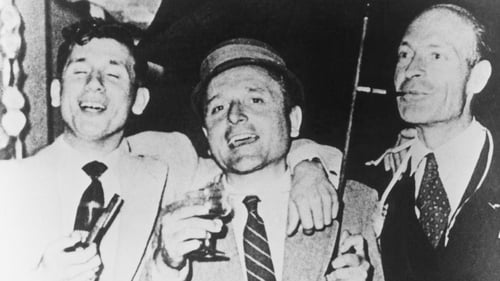
Self
Winner of a Best Documentary Academy Award, Marcel Ophuls' riveting film details the heinous legacy of the Gestapo head dubbed "The Butcher of Lyon." Responsible for over 4,000 deaths in occupied France during World War II, Barbie would escape--with U.S. help--to South America in 1951, where he lived until a global manhunt led to his 1983 arrest and subsequent trial.

Self - Interviewer
쇼아(히브리어로 '절멸'을 의미)란 2차 세계대전 당시 독일 나치가 유럽 전역에 있는 유대인을 비롯한 특정부류의 사람들을 집단 학살 한 것을 지칭한다. 감독 란쯔만은 8년간의 촬영과 350시간 분의 인터뷰를 9시간이 넘는 장편 다큐멘터리로 완성시켰다. 란쯔만은 나치 집단수용소도 아니고 하나의 전체로서의 나치체제도 아니며 하나의 과정으로서의 반유대주의도 아닌 죽음이 만연했던 구체적인 장소이며 지옥의 중추인 홀로코스트(나치 집단처형장)에 관해 논하기 위해 거의 10년 동안이나 세계를 돌아다녔다. 또한 란쯔만은 뉴스 필름이나 당시의 기록 필름을 단 한 커트도 사용하지 않고 등장 인물들의 말을 통해서만 유대인 학살을 이야기한다. 강제수용소의 생존자들, 나치 협력자들, 그리고 학살 작업에 동원되었던 사람들은 고통스럽게 그들의 과거를 카메라 앞에 드러낸다.

Writer
쇼아(히브리어로 '절멸'을 의미)란 2차 세계대전 당시 독일 나치가 유럽 전역에 있는 유대인을 비롯한 특정부류의 사람들을 집단 학살 한 것을 지칭한다. 감독 란쯔만은 8년간의 촬영과 350시간 분의 인터뷰를 9시간이 넘는 장편 다큐멘터리로 완성시켰다. 란쯔만은 나치 집단수용소도 아니고 하나의 전체로서의 나치체제도 아니며 하나의 과정으로서의 반유대주의도 아닌 죽음이 만연했던 구체적인 장소이며 지옥의 중추인 홀로코스트(나치 집단처형장)에 관해 논하기 위해 거의 10년 동안이나 세계를 돌아다녔다. 또한 란쯔만은 뉴스 필름이나 당시의 기록 필름을 단 한 커트도 사용하지 않고 등장 인물들의 말을 통해서만 유대인 학살을 이야기한다. 강제수용소의 생존자들, 나치 협력자들, 그리고 학살 작업에 동원되었던 사람들은 고통스럽게 그들의 과거를 카메라 앞에 드러낸다.

Director
쇼아(히브리어로 '절멸'을 의미)란 2차 세계대전 당시 독일 나치가 유럽 전역에 있는 유대인을 비롯한 특정부류의 사람들을 집단 학살 한 것을 지칭한다. 감독 란쯔만은 8년간의 촬영과 350시간 분의 인터뷰를 9시간이 넘는 장편 다큐멘터리로 완성시켰다. 란쯔만은 나치 집단수용소도 아니고 하나의 전체로서의 나치체제도 아니며 하나의 과정으로서의 반유대주의도 아닌 죽음이 만연했던 구체적인 장소이며 지옥의 중추인 홀로코스트(나치 집단처형장)에 관해 논하기 위해 거의 10년 동안이나 세계를 돌아다녔다. 또한 란쯔만은 뉴스 필름이나 당시의 기록 필름을 단 한 커트도 사용하지 않고 등장 인물들의 말을 통해서만 유대인 학살을 이야기한다. 강제수용소의 생존자들, 나치 협력자들, 그리고 학살 작업에 동원되었던 사람들은 고통스럽게 그들의 과거를 카메라 앞에 드러낸다.

Himself
Using interviews and other footage shot especially for this documentary, French director Claude Lanzmann investigates the state of Israel in 1972. This movie concentrates on Israelis going about their business of everyday living.

Writer
Using interviews and other footage shot especially for this documentary, French director Claude Lanzmann investigates the state of Israel in 1972. This movie concentrates on Israelis going about their business of everyday living.

Director
Using interviews and other footage shot especially for this documentary, French director Claude Lanzmann investigates the state of Israel in 1972. This movie concentrates on Israelis going about their business of everyday living.


































